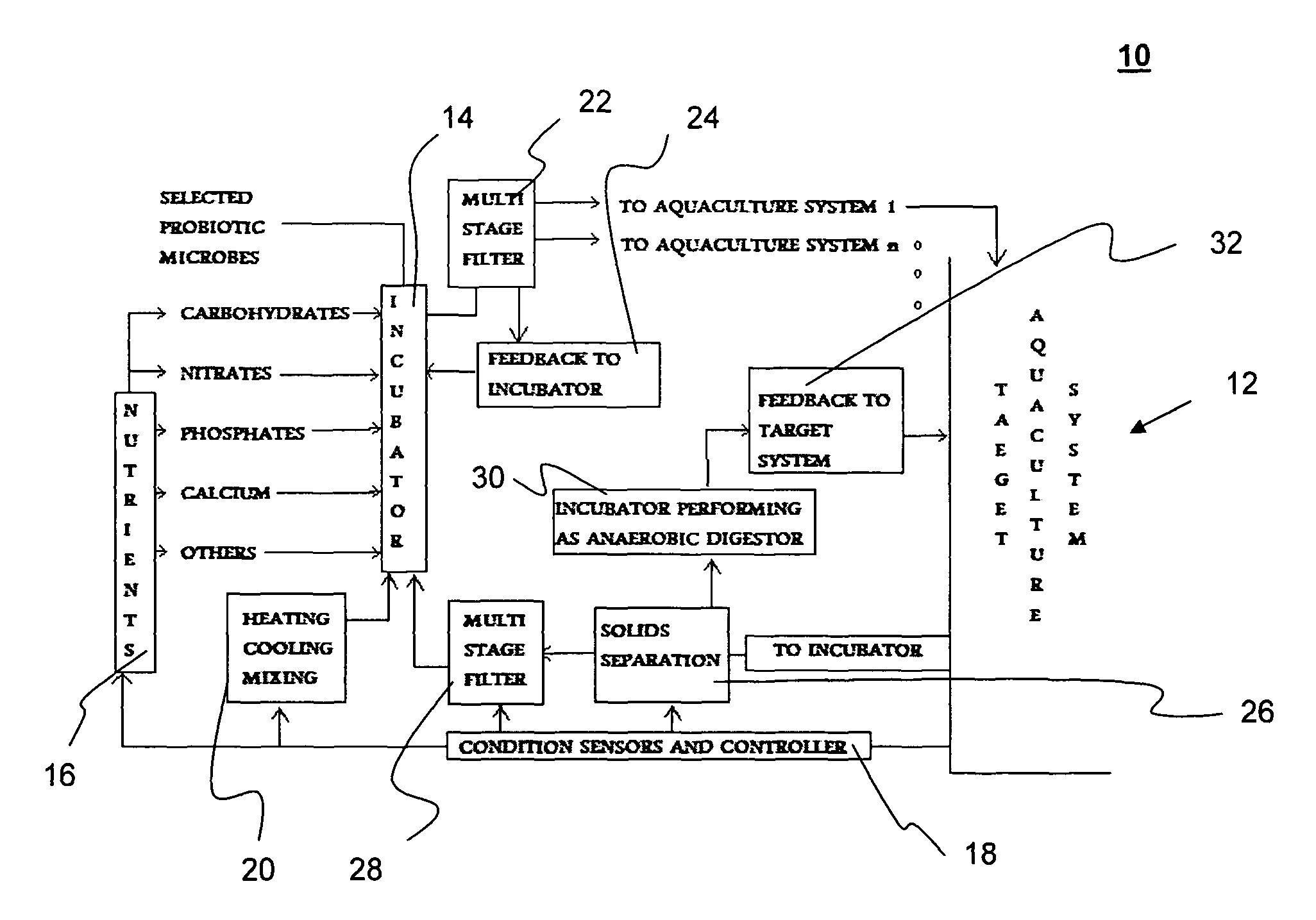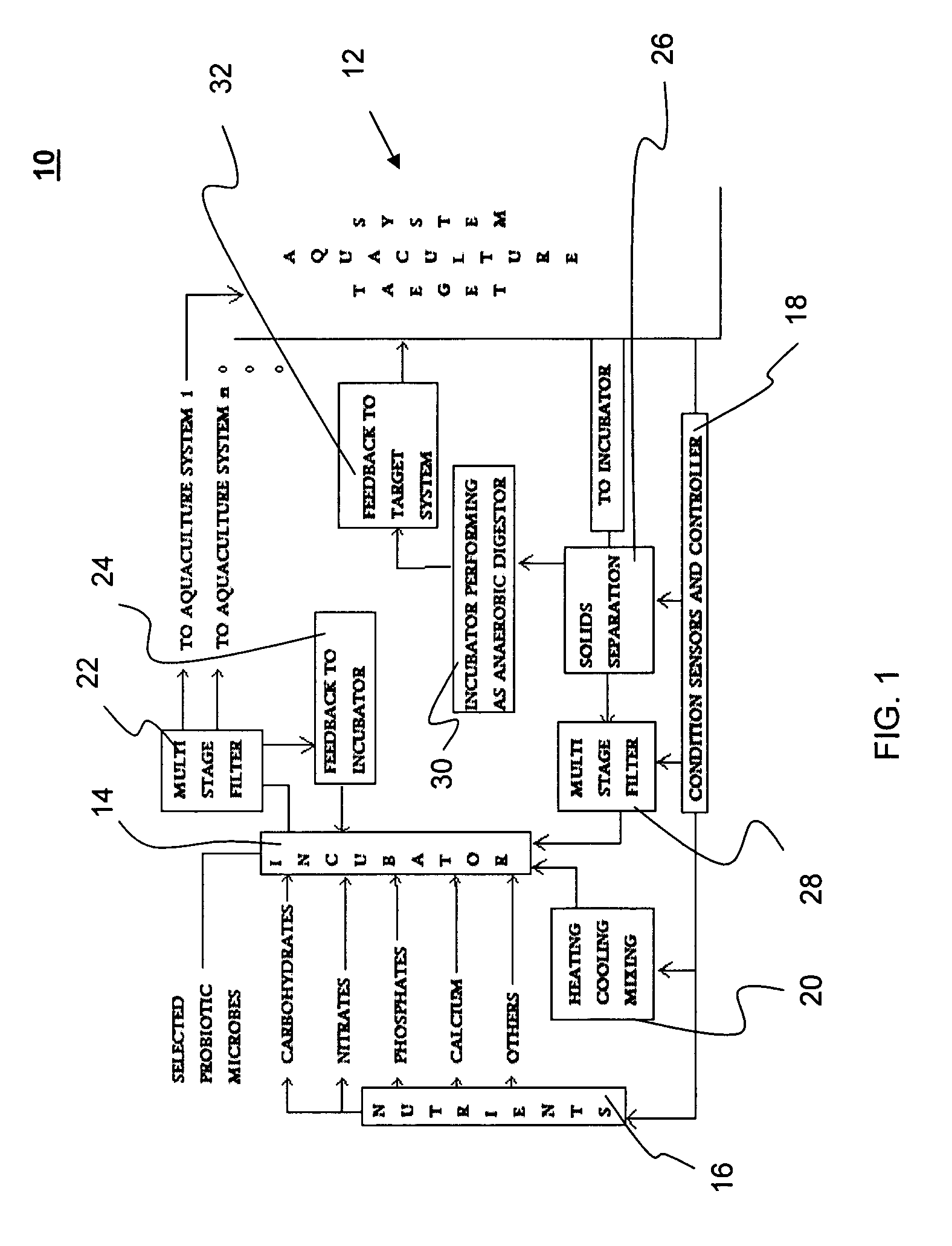Probiotic system and aquaculture devices
a technology of probiotics and aquaculture, applied in biological water/sewage treatment, sustainable biological treatment, multi-stage water/sewage treatment, etc., can solve the problems of increasing the size of the catch, reducing the environmental stress of species, and generating hazardous gases from residual feed. , to achieve the effect of reducing or minimizing the propagation or effect, reducing the environmental stress on species, and reducing the energy consumption associated
- Summary
- Abstract
- Description
- Claims
- Application Information
AI Technical Summary
Benefits of technology
Problems solved by technology
Method used
Image
Examples
example 1
Assembling an Aquaculture Device
[0044]An aquaculture device capable of incubating and delivering a beneficial bacteria to an aquatic environment is assembled for testing. The aquaculture device includes an incubation chamber, a means to monitor and regulate the temperature and a delivery means. For sake of the present example, an aquatic environment is constructed for demonstration of delivery.
Establishing a Test Aquatic Environment to Be Treated
[0045]A 350 gallon “food grade poly” stock tank is used as the aquatic environment, which is to be treated. These tanks are available through some livestock supply houses and feed stores. A biosecure water source from an existing aquaculture system is strongly advised. Obtaining a tank from a clean source is also recommended. The tank can be cleaned with a bleach solution as described by Dr. Sato in the Manzanar Project (Report October 1998: Manzanar Project From Dr. Gordon Sato). Follow the mixing and safety instructions for household sanit...
example 2
Growth of Brine Shrimp in an Aquatic Environment and Incubation and Delivery of Beneficial Bacteria to the Aquatic Environment
[0051]The aquaculture device assembled in Example 1 is tested for its ability to incubate and deliver beneficial bacteria to an outer environment. In this example, the beneficial bacteria are propagated and delivered as food supply to brine shrimp.
[0052]Artemia cysts are often called “Brine Shrimp Eggs,” and are sold at many pet stores. Live brine shrimp can also be found at pet stores, but are typically wild caught are require special acclimation procedures. The cysts may be hatched more efficiently by following the instructions on the package, but it might be a waste of eggs until the beneficial bacteria become established within the system. Depending on the source of the eggs, a more elaborate method of ensuring biosecurity may be advised, but the bacteria included with the eggs is far more likely to be beneficial than deleterious. A biosecure source of cy...
PUM
| Property | Measurement | Unit |
|---|---|---|
| temperature | aaaaa | aaaaa |
| diameter | aaaaa | aaaaa |
| length | aaaaa | aaaaa |
Abstract
Description
Claims
Application Information
 Login to View More
Login to View More - R&D
- Intellectual Property
- Life Sciences
- Materials
- Tech Scout
- Unparalleled Data Quality
- Higher Quality Content
- 60% Fewer Hallucinations
Browse by: Latest US Patents, China's latest patents, Technical Efficacy Thesaurus, Application Domain, Technology Topic, Popular Technical Reports.
© 2025 PatSnap. All rights reserved.Legal|Privacy policy|Modern Slavery Act Transparency Statement|Sitemap|About US| Contact US: help@patsnap.com


